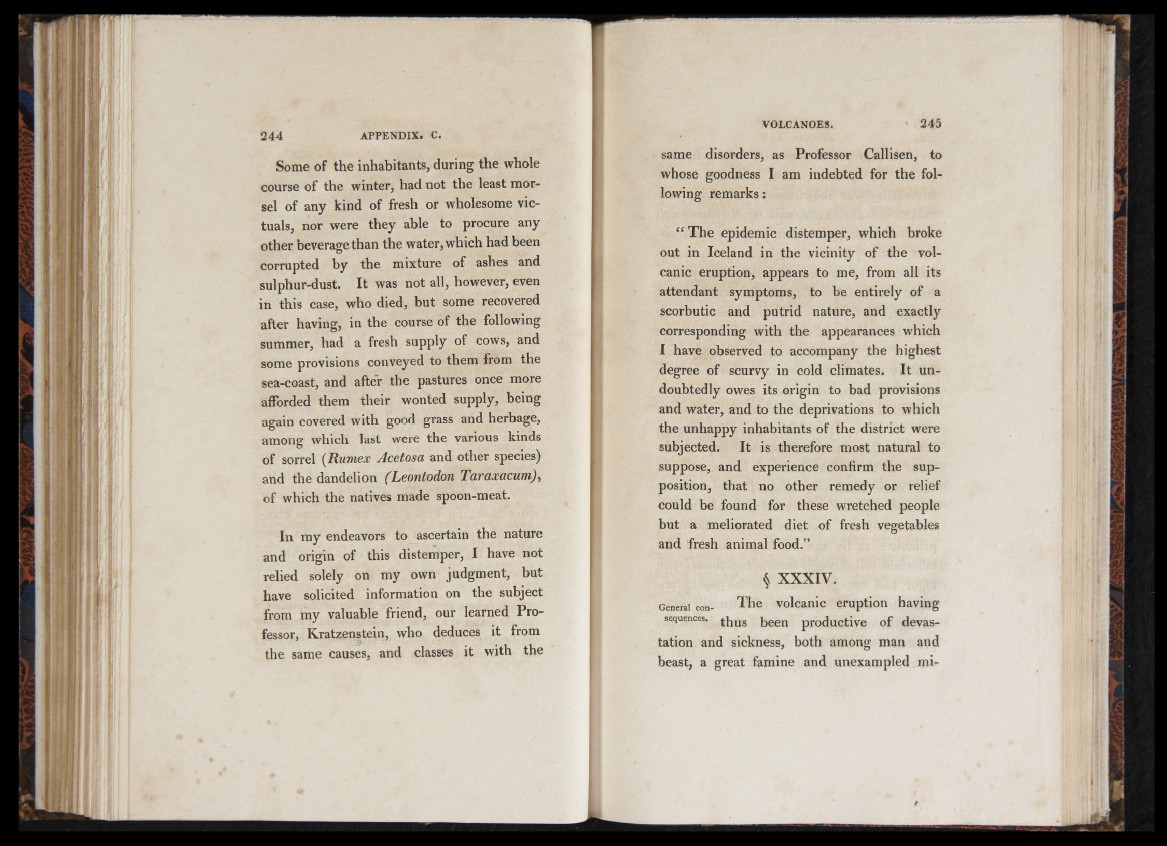
Some of the inhabitants, during the whole
course of the winter, had not the least morsel
of any kind of fresh or wholesome victuals,
nor were they able to procure any
other beverage than the water, which had been
corrupted by the mixture of ashes and
sulphur-dust. It was not all, however, even
in this case, who died, but some recovered
after having, in the course of the following
summer, had a fresh supply of cows, and
some provisions conveyed to them from the
sea-coast, and after the pastures once more
afforded them their wonted supply, being
again covered with good grass and herbage,
among which last were the various kinds
of sorrel (Rumex Acetosa and other species)
and the dandelion (Leontodon Taraxacum)f
of which the natives made spoon-meat.
In my endeavors to ascertain the nature
and origin of this distemper, I have not
relied solely on my own judgment, but
have solicited information on the subject
from my valuable friend, our learned Professor,
Kratzenstein, who deduces it from
the same causes, and classes it with the
same disorders, as Professor Callisen, to
whose goodness I am indebted for the following
remarks:
“ The epidemic distemper, which broke
out in Iceland in the vicinity of the volcanic
eruption, appears to me, from all its
attendant symptoms, to be entirely of a
scorbutic and putrid nature, and exactly
corresponding with the appearances which
I have observed to accompany the highest
degree of scurvy in cold climates. It undoubtedly
owes its origin to bad provisions
and water, and to the deprivations to which
the unhappy inhabitants of the district were
subjected. It is therefore most natural to
suppose, and experience confirm the supposition,
that no other remedy or relief
could be found for these wretched people
but a meliorated diet of fresh vegetables
and fresh animal food.”
§ XXXIV.
General con- The volcanic eruption having
sequences. j.jl u s been productive of devastation
and sickness, both among man and
beast, a great famine and unexampled mi